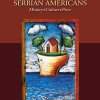International Christian Ministries (ICM) in cooperation with the Serb National Federation (SNF) plan to award up to 10 Scholarships to applicants who are undergraduate students at community colleges or universities. Applicant or at least one of his/her parents must be a refugee or descendent from the Republic of Croatia (Krajina region). The Deadline is December 31, 2020.
Membership in the SNF is not required. If an applicant is not a current member of the Serb National Federation, as a recipient of this Scholarship, he/she will automatically become a member of the SNF with an Annuity of $500.
For more information and Application, please visit our website at https://www.snf4u.com/krajina-scholarships or call the SNF Home Office at 412-458-5227.




